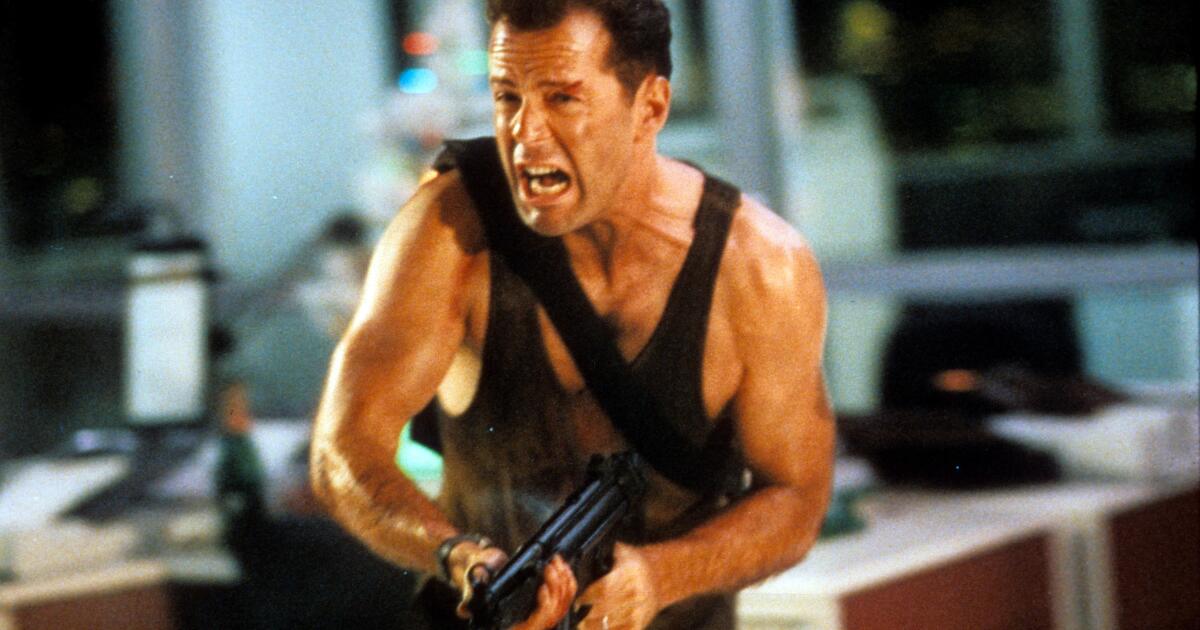Bruce Willis strutted onto the scene in 1985 as an aggressively charming, motormouth private detective who could talk his way into and out of any scrape presented. Starring opposite Cybill Shepherd in “Moonlighting,” which ran for five seasons on ABC, he was a star from the jump, electrically funny with a hint of the swashbuckling hero he would become a few years later in “Die Hard” (1988). Unlike fellow action stars (and Planet Hollywood partners) Arnold Schwarzenegger and Sylvester Stallone, Willis had range, bopping from blockbusters to comedies to character roles and back again throughout his career.
And he did it all with a refreshingly human touch. As Sean O’Connell writes in his new book, “Bruce Willis: Celebrating the Cinematic Legacy of an Unbreakable Hollywood Icon,” Willis showed “that heroes didn’t need to be chiseled from marble to prevail.” There’s something very sad about referring to Willis, 69, in the past tense, or the arrival of a book that serves as a career retrospective.

But that’s where we are. In 2022, Willis announced that he was retiring from acting due to aphasia , which progressed last year to frontotemporal dementia and will eventually claim his life. It’s a horribly cruel way to go — my girlfriend, Kate, died after her steep aphasia descent in 2020 — and it seems even worse when you consider Willis’ prodigious gift of gab, even if some of his best roles — Butch in “Pulp Fiction,” Dr.
Malcolm Crowe in “The S.























